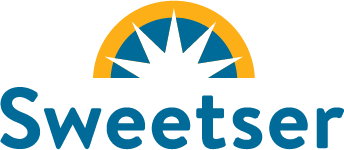
From left to right: Brunswick Police Chief Scott Stewart, Sweetser’s Senior Director of Crisis Jessica LeBlanc, & Sweetser’s new Mental Health Liaison for Law Enforcement Michael Maudlin
Sweetser has established a new partnership between law enforcement agencies throughout Brunswick and Sagadahoc County to provide crucial liaison work, including de-escalation resources and mental health support to those most in need.
Sweetser Liaison Michael Maudlin, who was hired for this new position, is based out of the Brunswick Police Department. He will also work with Bath and Topsham Police Departments, as well as the Sagadahoc County Sherriff’s Office.
The liaison can respond alongside law enforcement or respond to referrals from law enforcement and other community entities. The new partnership will have a goal to reduce the level of mental health work police are responsible for.
“Law enforcement can’t do it alone,” Brunswick Police Chief Scott Stewart said. “We are looking forward to how we can better protect and serve our area with the added capacity and outside expertise to address the mental health needs of our community.”
Mental health liaisons can step in and provide a different level of service than law enforcement can offer on their own. Liaisons can provide community members with links to area resources, mental health support, and de-escalation.
The movement toward hiring behavioral health professionals to work with law enforcement acknowledges that law enforcement officers have been asked to wear many hats, acting as both law enforcement and frontline mental health response.
“We’ve seen this model work extremely well and now it will be deployed throughout the Midcoast,” Sweetser’s Senior Director of Crisis & Adult Residential Jessica LeBlanc said. “When law enforcement is called, Sweetser hopes to put treatment, support, and hope on the forefront of community engagement in situations where behavioral health professionals might be best suited to respond.”
The Brunswick PD and the Sagadahoc County Sheriff’s Office have joined together to fund this position using Opioid Settlement funds, with work having already begun. Maine is receiving at least $235 million over the next two decades in settlements from companies accused of fueling the opioid crisis.
“It’s the best use of these funds to send back out in our communities to provide critical services that address the crisis we are currently experiencing,” says Sagadahoc County Sherriff Joel Merry.
Sweetser has liaisons embedded in various law enforcement entities across the state.












 Town & Country Grant Voting Contest – All through October
Town & Country Grant Voting Contest – All through October Marc Motors Oil Change Fundraiser – All through October
Marc Motors Oil Change Fundraiser – All through October Stevie Wonder Benefit Concert — Saturday, Oct. 21st, 8PM
Stevie Wonder Benefit Concert — Saturday, Oct. 21st, 8PM


